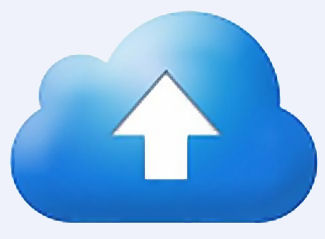Microsoft Expands Azure With ERP For SMBs

Microsoft continues to increase the products on Windows Azure after adding an ERP product to the platform
Microsoft continues the expansion of its Windows Azure cloud platform, this time with the addition of yet another product from Redmond’s sprawling business software portfolio.
The company announced on 18 June that Microsoft Dynamics GP 2013 and Dynamics NAV 2013 enterprise resource planning (ERP) platforms for small to midsize businesses (SMBs) are now available on a cloud-delivered basis courtesy of the company’s Windows Azure cloud infrastructure. The cloud-powered applications arrive more than two years after the company first announced that its Dynamics ERP products slate would eventually migrate toward a Windows Azure-hosted model.
Channel Only
“Customers can take advantage of easy-to-use, quick-to-implement business solutions from Microsoft with the added benefit of knowing their solution is hosted on secure, enterprise-class cloud infrastructure from a trusted provider,” Paul White, Microsoft’s Dynamics ERP senior director, wrote in a 18 June blog post.
 Going forward, SMBs can opt to deploy Microsoft Dynamics NAV and GP supply chain software as cloud-based applications using Microsoft’s Windows Azure Infrastructure Services. “This means your solution can now be hosted in a secure, private cloud on a Windows Azure Virtual Machine,” White explained.
Going forward, SMBs can opt to deploy Microsoft Dynamics NAV and GP supply chain software as cloud-based applications using Microsoft’s Windows Azure Infrastructure Services. “This means your solution can now be hosted in a secure, private cloud on a Windows Azure Virtual Machine,” White explained.
Underscoring the cloud’s mobile-enabling benefits, White added that “users can access the solution using Web or desktop clients, either from the office or on the go using mobile devices.”
However, channel partners shouldn’t fear that Microsoft is cutting them out of the loop, according to White. “It’s important to note that there’s no change in our partner model here, meaning that Microsoft Dynamics GP and NAV continue to be available only through our partners, and not direct from Microsoft,” he wrote.
The company remains “deeply committed to the industry and regional expertise our partners bring to every customer engagement,” argued White. Partners, he added, bring “customers the broadest possible range of choices in terms of partner selection, pricing and licensing, deployment options, hosting providers and more.”
Azure Growth
Microsoft is also apparently committed to rapidly growing its Windows Azure ecosystem.
To compete in the growing market for big data software and services, the company released a preview version of its Windows Azure HDInsight Service, a Hadoop distribution, on 18 March. Under HDInsight, Hadoop clusters can be set up in minutes, rather than hours or day, according to the company.
Moreover, it supports a platform that is emerging as the industry standard for big data processing. “Windows Azure HDInsight Service offers full compatibility with Apache Hadoop, which ensures that when customers choose HDInsight they can do so with confidence, knowing that they are 100 percent Apache Hadoop compatible now and in the future,” said Eron Kelly, general manager for SQL Server product management.
Those moves appear to be paying off.
Windows Azure is used by more than half of the Fortune 500, according to Microsoft. And new customers are signing up each day. “In just a year, we have grown to over 200 services for our platform, more than doubled our customer base (now at 250,000) and are seeing an average of 1,000 new customers per day,” Steven Martin, Microsoft’s general manager for Windows Azure, wrote in a 14 June blog post.
How well do you know the cloud? Take our quiz.
Originally published on eWeek.